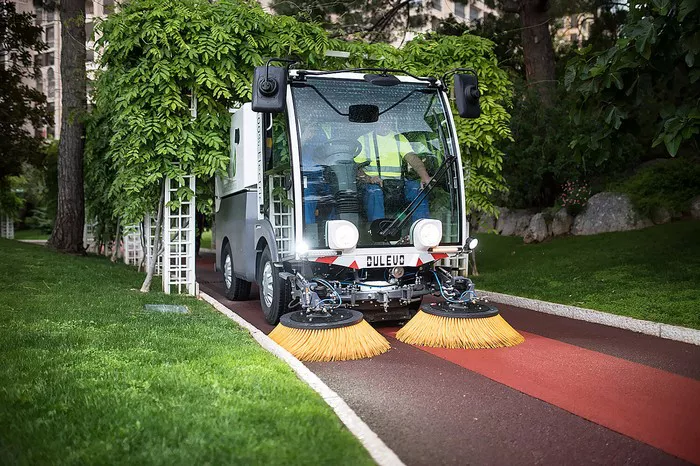Road sweepers are essential machines in maintaining the cleanliness and safety of our roads, parking lots, and other public spaces. However, purchasing a road sweeper involves more than just selecting a model. Understanding the various factors influencing road sweeper costs is crucial for making an informed decision. In this comprehensive guide, we delve into the intricacies of road sweeper pricing to help you navigate the purchasing process effectively.
Factors Influencing Road Sweeper Costs
Type of Road Sweeper
Road sweepers come in different types, each with its unique mechanisms and functionalities:
1. Mechanical Sweepers: These sweepers use rotating brushes to sweep debris into a collection hopper. They are suitable for removing heavier debris like gravel and sand from road surfaces.
2. Vacuum Sweepers: Utilizing powerful suction, vacuum sweepers collect debris directly into a storage tank. They are efficient in picking up lighter materials like leaves, litter, and dust.
3. Regenerative Air Sweepers: These sweepers combine suction with a high-velocity air stream to lift debris into the hopper. They excel in collecting fine particles and are often used for street cleaning in urban areas.
The choice of road sweeper type depends on the specific cleaning requirements and environmental conditions of the area.
Sweeping Capacity and Size
The size and sweeping capacity of a road sweeper directly impact its cost. Larger sweepers with higher capacity typically command a higher price due to their enhanced efficiency and productivity. Additionally, larger sweepers may require more robust engines and components, contributing to the overall cost.
Features and Technology
Modern road sweepers are equipped with a range of features and technologies designed to improve performance, efficiency, and operator comfort. Some common features include:
1. GPS Tracking: Allows for real-time monitoring of sweeper location and activity.
2. Automated Controls: Streamline operation and optimize sweeping patterns for maximum efficiency.
3. Eco-Friendly Systems: Such as water recycling and emission control systems to reduce environmental impact.
4. Telematics Integration: Enables remote diagnostics and performance monitoring.
While these features enhance functionality, they also add to the upfront cost of the sweeper. However, they can lead to long-term savings through improved productivity and reduced operational expenses.
Brand and Manufacturer
The brand and manufacturer of a road sweeper can significantly influence its cost. Established brands with a reputation for quality and reliability often command higher prices. However, investing in a reputable brand can provide assurance of product durability, after-sales support, and availability of spare parts, ultimately reducing long-term ownership costs.
Fuel Type
Road sweepers are available in various fuel options, including diesel, gasoline, electric, and hybrid. The choice of fuel type can impact both upfront costs and long-term operating expenses. While electric and hybrid sweepers may have higher initial purchase prices, they offer potential savings on fuel and maintenance costs over their lifespan. Additionally, electric and hybrid models contribute to reduced emissions, making them environmentally friendly choices.
Maintenance and Service Contracts
Some manufacturers offer maintenance and service contracts as part of their offerings. These contracts typically cover routine maintenance, repairs, and parts replacement, providing peace of mind to the buyer. While opting for a maintenance contract may increase the initial cost of the sweeper, it can help mitigate unexpected expenses and downtime, ultimately saving money in the long run.
Understanding Road Sweeper Costs: Price Ranges and Considerations
To provide a clearer understanding, let’s explore typical price ranges for road sweepers based on the factors discussed above:
1. Mechanical Sweepers: Entry-level mechanical sweepers may start at around $50,000, while larger, high-capacity models can range up to $150,000 or more, depending on features and brand.
2. Vacuum Sweepers: Prices for vacuum sweepers typically range from $80,000 to $250,000, with factors such as size, suction power, and technology influencing the cost.
3. Regenerative Air Sweepers: These advanced sweepers generally have higher price points, ranging from $100,000 to $300,000. The inclusion of sophisticated technology and environmental features contributes to their premium pricing.
It’s important to note that these price ranges are approximate and can vary based on specific configurations, optional features, and market conditions. Buyers should carefully assess their requirements and budget constraints when selecting a road sweeper.
Conclusion
Investing in a road sweeper is a significant decision that requires careful consideration of various factors, including type, size, features, brand, fuel type, and maintenance options. By understanding the complexities of road sweeper costs and how different factors influence pricing, buyers can make informed decisions that align with their cleaning needs, budget, and long-term goals. Prioritizing quality, efficiency, and reliability over upfront costs can lead to greater satisfaction and return on investment in the long run.
FAQs
Q1. What factors should I consider when choosing a road sweeper?
A1: When selecting a road sweeper, consider factors such as the type of sweeper (mechanical, vacuum, regenerative air), sweeping capacity, features like GPS tracking and automated controls, brand reputation, fuel type, and maintenance options.
Q2. Are there any hidden costs associated with owning a road sweeper?
A2: While the initial purchase price is significant, it’s essential to consider ongoing costs such as fuel, maintenance, repairs, and potential downtime. Additionally, investing in training for operators and potential regulatory compliance costs should be factored in.
Q3. How can I ensure the most cost-effective choice for my road sweeping needs?
A3: To ensure cost-effectiveness, conduct thorough research, compare different models and brands, consider total ownership costs rather than just upfront prices, evaluate maintenance and service contracts, and assess the long-term efficiency and reliability of the sweeper for your specific requirements.

